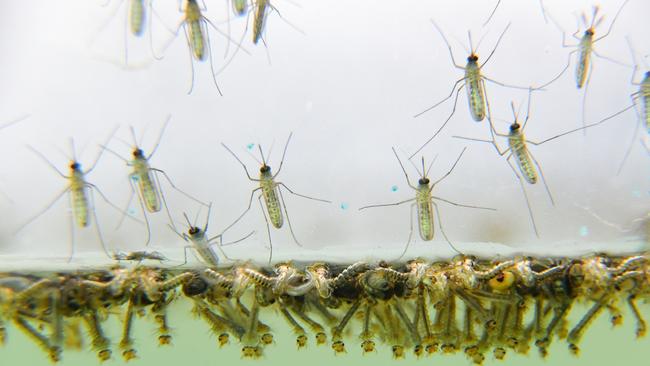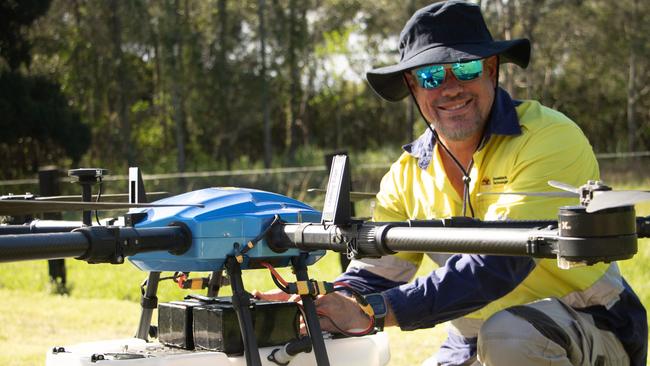Tweed Shire Council deploy drones to tackle mosquitoes during peak Northern Rivers breeding season
A Northern Rivers council has been waging war on mozzies – and they’re bringing a futuristic approach to blitz the irritating insects. Check out the battle plan.

Tweed Heads
Don't miss out on the headlines from Tweed Heads. Followed categories will be added to My News.
They are the bane of our existence and they need to be blitzed, if one Northern Rivers council’s mozzie strategy is anything to go by.
Tweed Shire Council has waged an all-out war on the biting insects this breeding season.
After recent heavy rainfall, the council is looking at a futuristic approach – specialised drone technology will be used to reduce numbers.
The Tweed is the only local government area in the Northern Rivers with a regular larvae treatment program.
David Bell, senior program leader environmental protection, said the council’s pest management team had employed a range of techniques to tackle the problem in the past.
“Our program involves a wide range of techniques to beat mosquitoes, including spraying large-scale breeding grounds from the air via plane or helicopter when weather conditions allow,” he said.
“Due to recent issues with contractor availability, Council is currently trialling different methods of aerial mosquito larvae treatment, such as the use of drone technology to treat certain known breeding areas.”

The council began its drone treatment trials in Pottsville late last year, with further trials rolling out this week at Tumbulgum.
Treatment also began last week in the northern areas of the Tweed at Bilambil, Terranora, Cobaki and Piggabeen, with additional treatment scheduled across the Shire where required, during the breeding season.
“The treatment used by council is safe and did not affect other aquatic organisms,” Mr Bell said.
“Our mosquito larvae treatment applies products targeting immature larval stages, which interrupts mosquito breeding and reduces the number of adult mosquitoes.
“Treatment is only effective when carried out at immature mosquito larval stages. The larvicide we use is specific to mosquitoes and several other closely related flies.
“It poses no harm to other aquatic non-target organisms.”
The program is regulated by NSW Environment Protection Authority (EPA) and its backed by NSW Health.
The program also monitors mosquito populations for diseases such as Ross River Fever and Barmah Forest viruses.
Mr Bell said residents could assist in controlling the problem.
“While we are doing everything we can on the frontline to combat mosquito larvae, it’s important people understand the ways in which they can protect themselves and minimise localised population explosions,” he said.
“Something as simple as having a small pool of stagnant water in the backyard can mean mosquitoes – which can lay up to 300 eggs at one time – become rampant within a small space of time.”
“One of the most effective ways to stop mosquitoes breeding nearby is to empty any water-holding containers such as pet bowls, pot plants and bird baths at least once a week.”
More information on the council’s mosquito program is available here.





